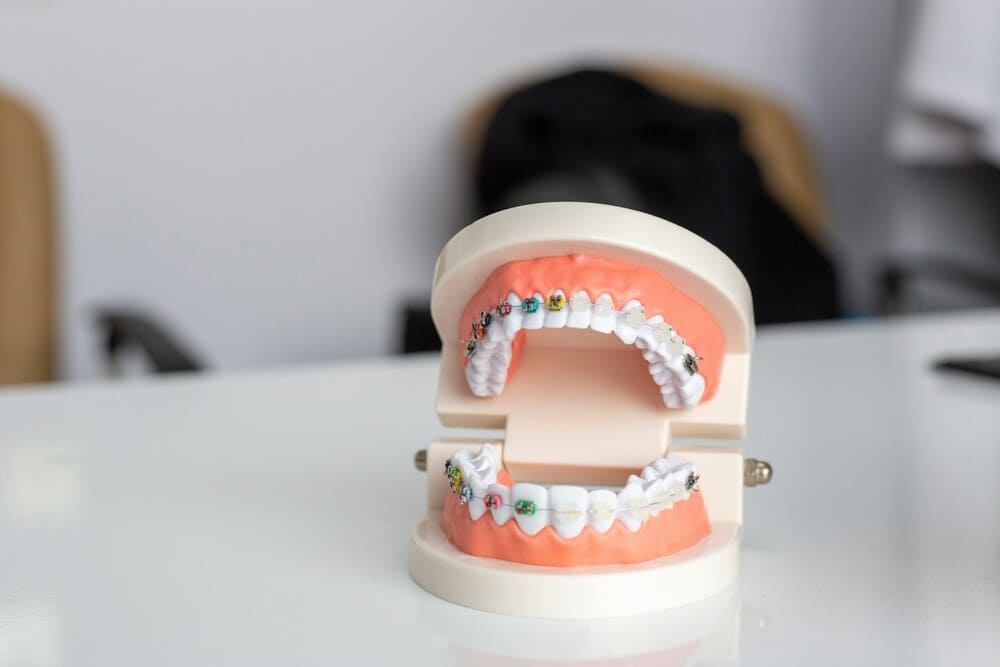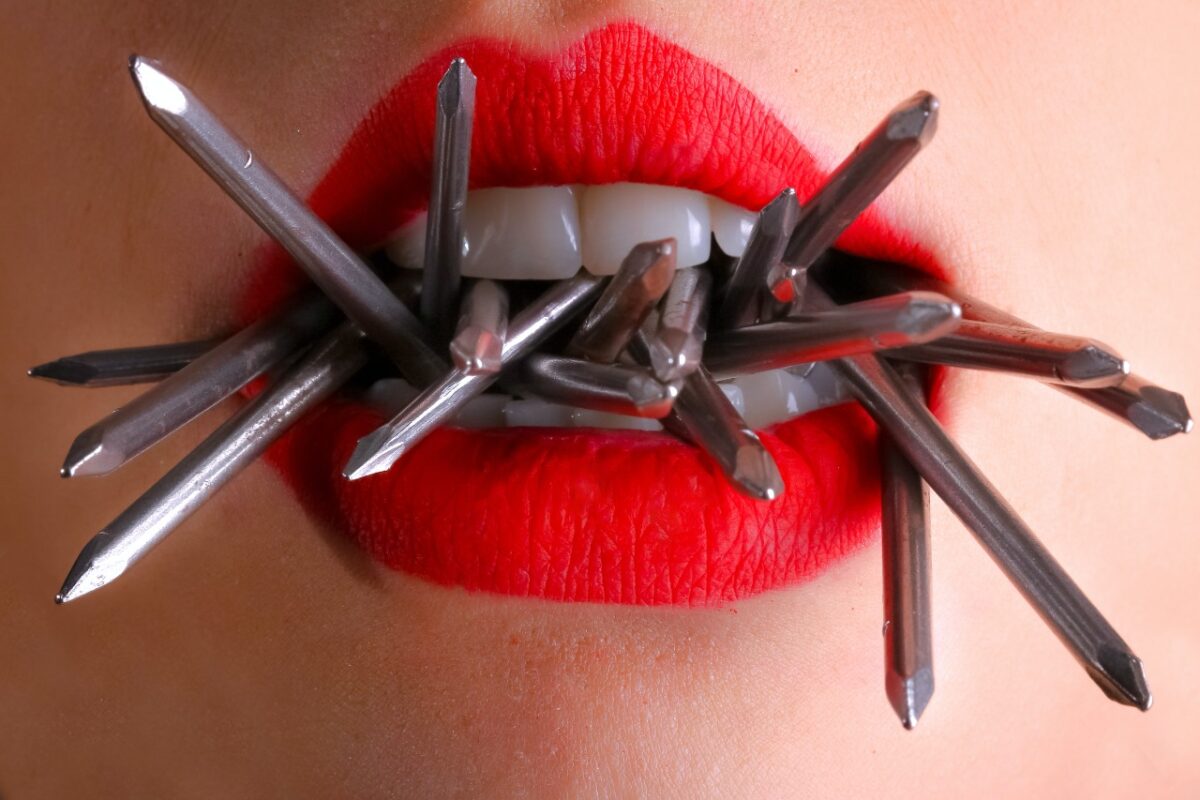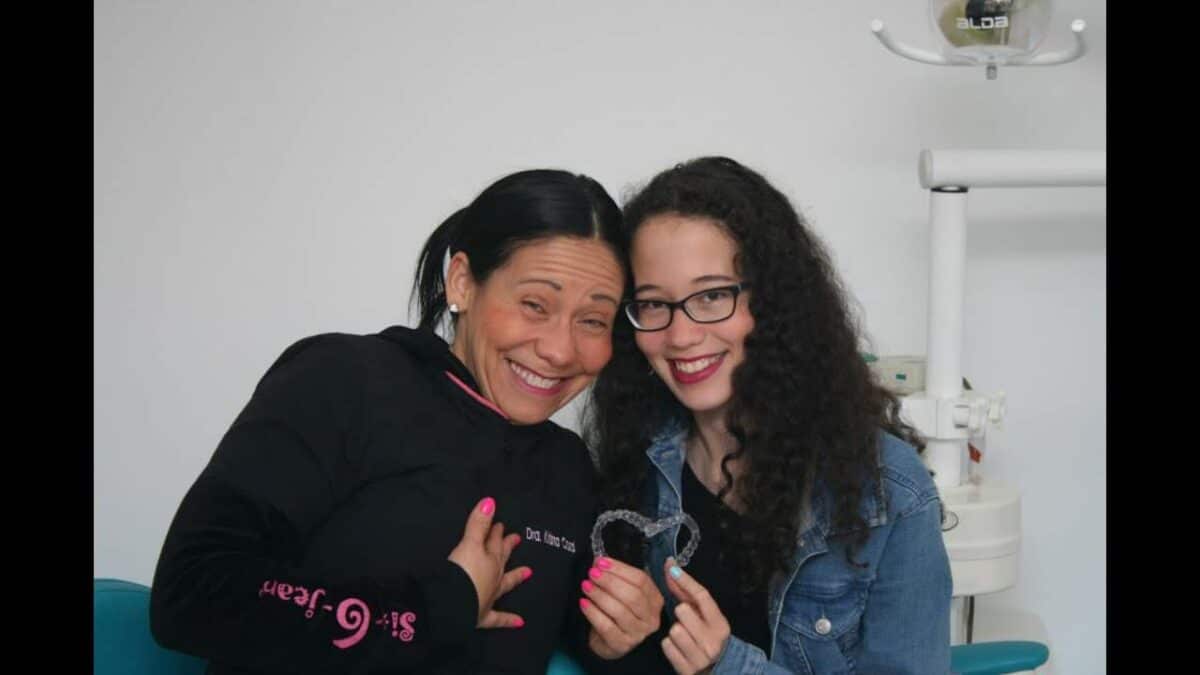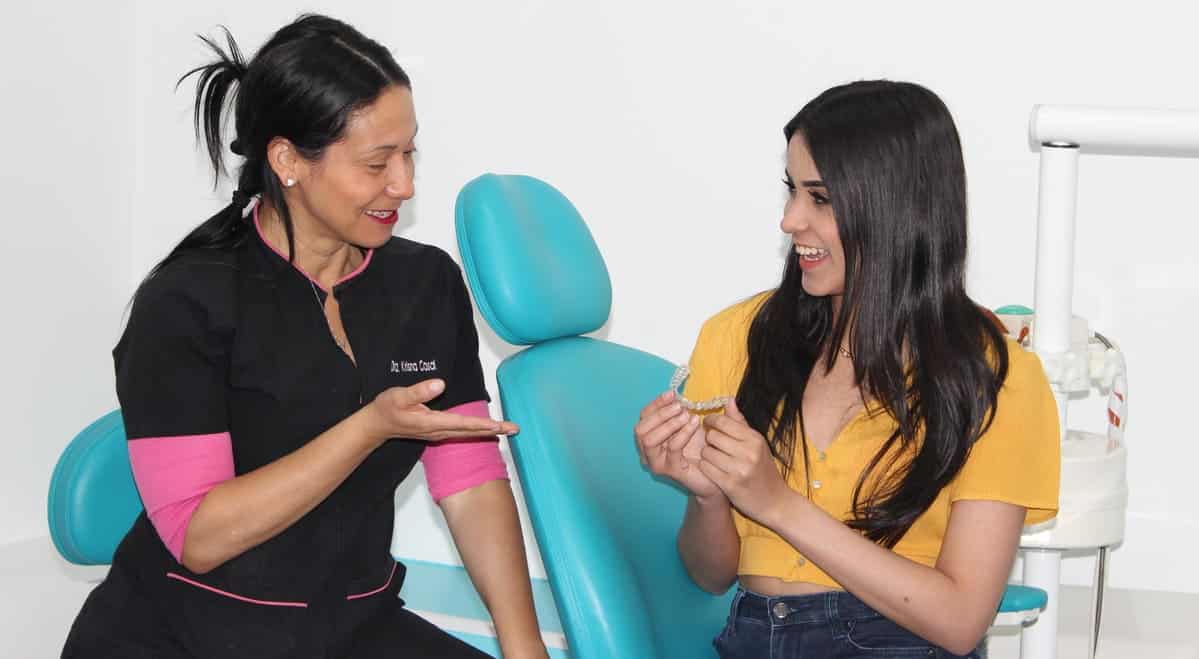Transparent aligners, also known as aligners for their English translation, are the fundamental component of the invisible orthodontics .
They are the ones who carry out the forces that cause the movements necessary to align the teeth.
They are made of transparent material is to achieve the aesthetic effect of being practically invisible and hence its great benefit to be used without anyone noticing.
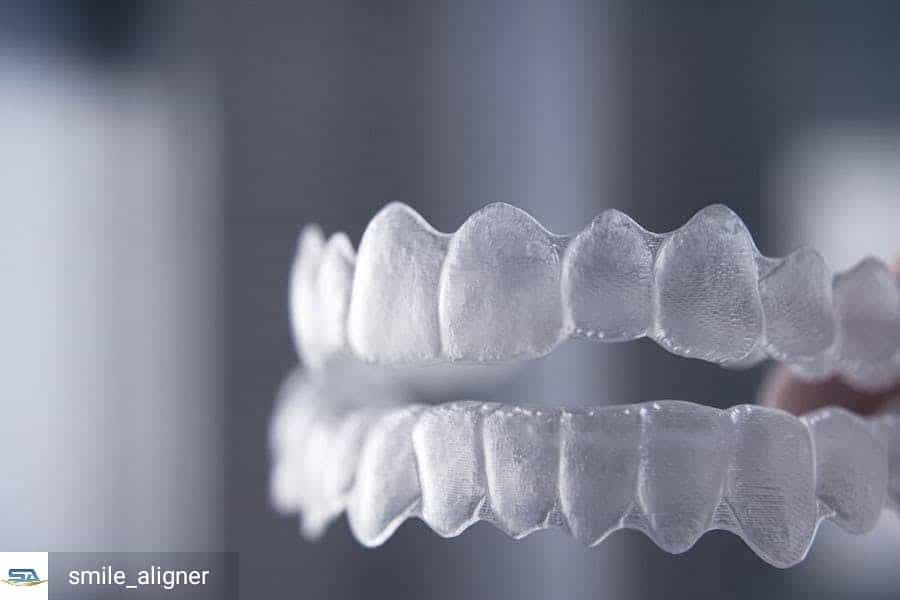
Table of Content
What are clear aligners?
They are cuvettes that are manufactured from 1.5 mm thick (0.06 “) biocompatible acetate plates. They are very similar to dental retainers.
At the Asiri Dental Center located in Quito, Ecuador, we use the best quality sheets of the brand Bio-Art
These plates take their shape by vacuum suction on a model of the teeth where they will be installed, so they have an exact fit to the shape of the teeth of that model.
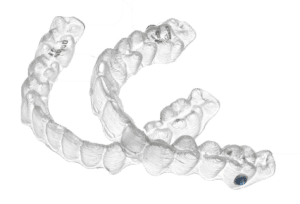
Manufacturing process
3D scan
The patient’s teeth are scanned to obtain a digital model of their entire teeth.
Design and treatment plan
The digital model of the teeth is entered into a special computer program where the orthodontist designs the treatment plan.
In this plan, the movements that need to be made to align the patient’s teeth are reflected.
At this time, the CAD / CAM program generates a series of dental models where you can see how the patient’s teeth are aligned.
3D printing
The models generated by the program are 3D printed to serve as the basis for the manufacture of the aligners.
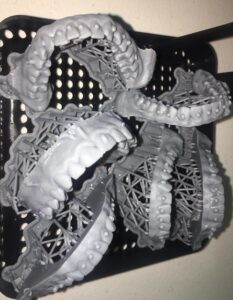
Suction in vacuum machine
Once the models have been printed, all the aligners that the patient requires are manufactured on them.
This is achieved in a vacuum machine (vaccum) that heats the acetate sheet and then sucks it on each model.
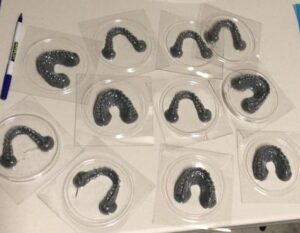
Effect of transparent aligners on teeth
As each model has the teeth in a different position than the one the patient actually has at that moment, when the patient puts on the aligner, it exerts forces that cause the teeth to conform to the shape of the aligner.
This is how each aligner brings to life the dental movements that the orthodontist has planned.
Thus, sequentially, the entire series of aligners are placed until the treatment ends.
Wear time in the mouth
For the clear aligner to achieve its purpose, it is worn at least 22 hours a day, that is, it can only be removed for eating and brushing your teeth.
This allows that in those moments you can clean your teeth in a normal way with brushing and flossing.
Caring for clear aligners
Basic care is focused on preventing tears and aligner hygiene.
When not in the mouth, the aligner must be placed in its protective box to avoid accidental blows that could damage it.
When removing it from the mouth, it should be done carefully and evenly.
Cleaning is done with neutral soap and a toothbrush
Aligners Sequential changes
Once the aligner performs the intended movements, it must be replaced by the next aligner in the treatment sequence.
This lifespan of the aligner depends on what is planned by the orthodontist and is usually between 15 and 30 days.
However, this time may vary according to the conditions of each patient, for this reason it is necessary to have control appointments where the orthodontist evaluates the progress of the treatment.
Conclusions
Technological advances allow more and more to enjoy aligned teeth and without the need for metals in your mouth.
At the Asiri Dental Center in Quito we are pioneers in Invisible Orthodontics in Ecuador.


